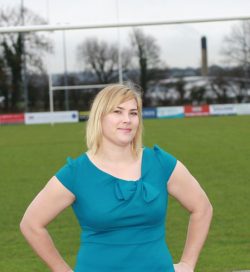Catherin Spencer, the former women’s Rugby team captain has published an article in The Guardian on the subject of the inequality between men’s and women’s sport in general, and in particular about the huge investment gap.
She said that if she had been given a pound for the times she had been asked about the hurdles women in sport face, she would be a rich lady. As it is, she mourned, her bank balance is only that of a retired England Rugby captain – and a women’s rugby captain at that.
Women rugby players had to play for the love of the game
When Spencer held the captaincy, from 2007 to 2011, the players were expected to play for the love of the game. Her team included doctors, teachers, policewomen and veterinary surgeons who spent all of their free time training and playing without any financial reward – unlike today’s lady players who at least are given match fees on a match-by-match basis.
The ex-women’s captain mentioned browsing the BBC Sport website homepage recently. She searched out the women who were featured and came across Serena Williams, and the silver medallists from the British Winter Paralympian team, Jen Kehoe and Menna Fitzpatrick. These three sportswomen were amongst 33 photos of male sports athletes, which highlights the problem nicely.
Lack of media coverage for women’s sports events
Women’s sport doesn’t get anywhere near the same amount of coverage in the media that men’s sport does. The same problem occurs with sponsorships too. It creates a never-ending circle. To attract sponsorships, the sponsors want to know those they sponsor will get plenty of TV publicity. However, the TV companies don’t show much women’s sport because they maintain it doesn’t attract the same size of audience that men’s sporting events do.
Breaking the circle
Of course, from the audience’s side of the coin, they say that they can’t watch women’s sport because it isn’t broadcast enough. And so it goes – round and round in perpetuity. The chain somehow needs to be broken, but how?
Anything is possible given enough application. As Catherine herself reminded us, she captained her team in winning four Six Nations championships, plus getting to the World Cup final, all the while holding down a full-time job.
To break the underinvestment circle, all that is needed is the courage and some dedication. The recent spectacle in women’s international rugby was when France beat England. Not only was the game was seen by over 17,000 spectators (the most ever to witness a women’s test match) but more people than ever also got involved with placing bets on the outcome.
That same day 5,000 spectators watched Twickenham beat Richmond at the Harlequins’ ground. A British record.
Getting the message across
Catherine Spencer is determined to further the cause of equality for women’s sport, even though she has retired from international rugby. She is writing her own book, rather aptly titled, “Mud, Maul, Mascara.” She has also started her own agency and is getting in there amongst the almost men-only-world of after-dinner speaking.
She is doing her bit in an effort to show that women’s sport should be taken seriously and that it has much to offer; a sentiment more and more people are beginning to agree with.



